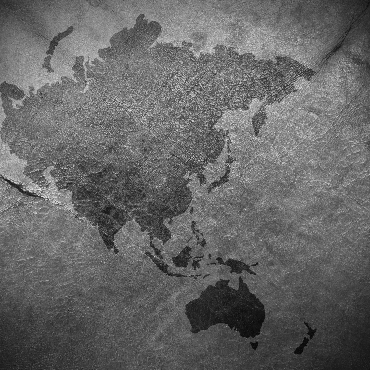REVISING THE STATUS OF JAMMU & KASHMIR
On December 11, 2023, India's Supreme Court upheld Prime Minister Narendra Modi's 2019 decision to revoke the special status of Jammu & Kashmir, India's only Muslim-majority province. Local polls to decide the future of those states will be held sometime this year. Jammu & Kashmir, which is Indian-controlled territory, has been a point of contention between India and Pakistan for more than 75 years, ever since the end of the Indo-Pakistani war of 1971. Local political parties are disappointed with the court's verdict, which strips the region of its autonomy and gives further control to the Indian federal government. Islamabad's caretaker government, meanwhile, has rejected the verdict - which Modi has called "a beacon of hope, a promise of a brighter future to our collective resolve to build a stronger, more united India." (Agence France-Presse, December 11, 2023; NikkeiAsia, December 11, 2023)
[EDITOR'S NOTE: Removing the special status of Jammu & Kashmir has been key tenet of Modi's Bharatiya Janata Party since its formation in 1980. The decision, though, has a great deal to do with political positioning; with Indian government elections set to take place later this Spring, the court's verdict comes at an opportune time for Modi and the BJP.]
AMERICAN AUTHORITIES THWART INDIAN ASSASSINATION PLAN
The U.S. Drug Enforcement Administration set up a sting operation where they caught an Indian national, Nikhil Gupta, attempting to pay $100,000 to assassinate an American-Canadian dual citizen, Gurpatwant Singh Pannun. Pannun is a prominent Sikh separatist leader living in New York City. Gupta was directed by an Indian government employee, referred to as CC-1 in court documents, to carry out the plot. He is currently imprisoned in the Czech Republic pending extradition to the United States. Gupta has been charged with murder-for-hire and conspiracy to commit murder-for-hire, and is expected to be tried in New York City upon his extradition. The events mirror September's killing of Canadian citizen and Sikh activist Hardeep Singh Nijjar, an assassination that the government of Canadian Prime Minister Justin Trudeau has accused India of carrying out. (Associated Press, November 30, 2023; NDTV, January 11, 2024)
INDIA-MALDIVES ROW ESCALATES
In the final month of 2023, a political row broke out between India and the Maldives after Maldivian deputy ministers made offensive remarks regarding Indian Prime Minister Narendra Modi on social media. Relations took a turn for the worse from there, culminating in Male's decision to order New Delhi to withdraw the 77 Indian soldiers and 12 medical personnel stationed in the Maldives by March 15th. The Indian soldiers in the country are mostly used to manage the two helicopters and a Dornier aircraft gifted by India, which are used for marine surveillance, search and rescue operations and medical evacuations.
Notably, the decision came immediately following Maldivian President Mohamed Muizzu's visit to China, where the two nations elevated their relationship to the status of a "comprehensive strategic cooperative partnership." This decision also feeds into Maldivian domestic politics. President Muizzu campaigned on a policy of "India out," with the goal of decreasing India's traditionally close ties with the archipelago nation. Instead, Muizzu plans to diversify the country's imports by importing medicines from the U.S. and Europe and food from Turkey. However, there is skepticism regarding how financially and logistically feasible this plan truly is. (South China Morning Post, January 17, 2024; BBC, January 15, 2024)
PLAYING POLITICS WITH RELIGION IN INDIA
On January 22, 2024, Indian Prime Minister Narendra Modi inaugurated a Hindu temple dedicated to Lord Ram in Ayodhya. The day was celebrated like a public holiday in many states, with ongoing festivities, 24-hour news coverage, and even resulted in closing the stock markets for the day. However, the temple itself is not fully finished, and many are claiming the temple's inauguration is being exploited for political gain ahead of the country's national election. Moreover, the temple has a controversial history, as it was built on the remains of a mosque that was "razed to the ground in 1992 by Hindu mobs who believed it was built on temple ruins marking the birthplace of Lord Ram." In a unanimous 2019 verdict, India's Supreme Court gave the land to Hindus and a federal government trust was set up to oversee the new temple's construction.
Since Prime Minister Modi's overtly Hindu-nationalist administration came to power in 2014, India has seen greater religious and social divisions - and an unprecedented fusion of religion with politics on the part of the country's government. With general elections approaching this Spring, Modi is hoping to lead his Bharatiya Janata Party to victory and a third consecutive term in power. The consecration of the temple in Ayodhya has already served to boost his image as a strong nationalist leader. (Guardian, January 15, 2024; PBS, January 22, 2024)
Want these sent to your inbox?
Subscribe
South Asia Strategy Monitor No. 13
Related Categories:
Democracy and Governance; Intelligence and Counterintelligence; India; Pakistan; South Asia; Maldives

